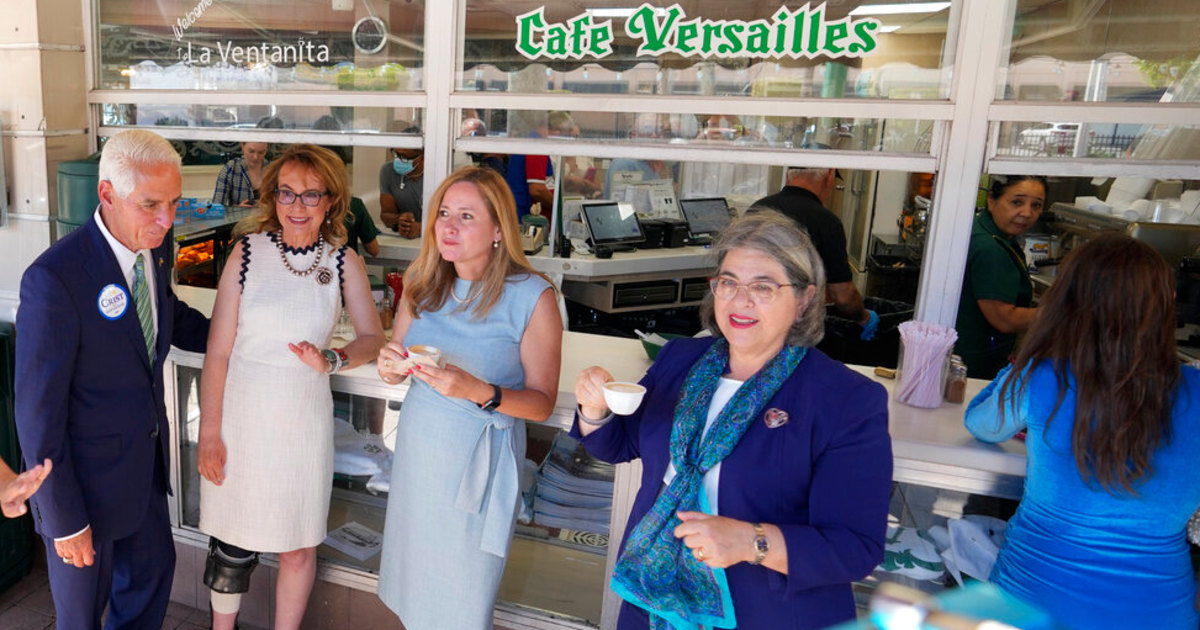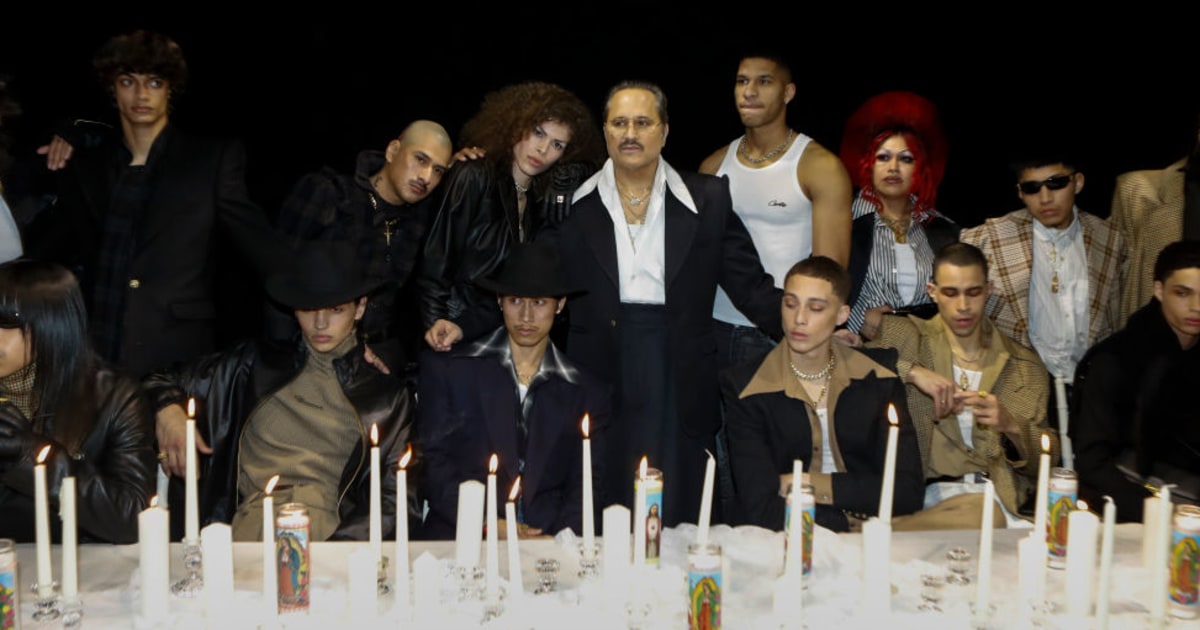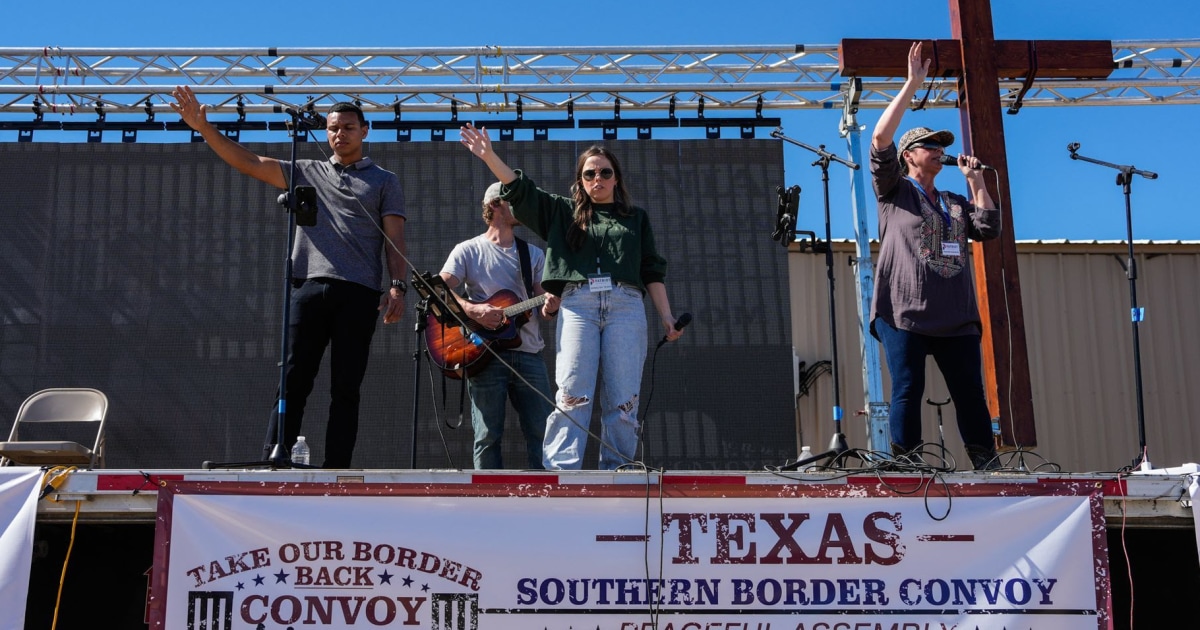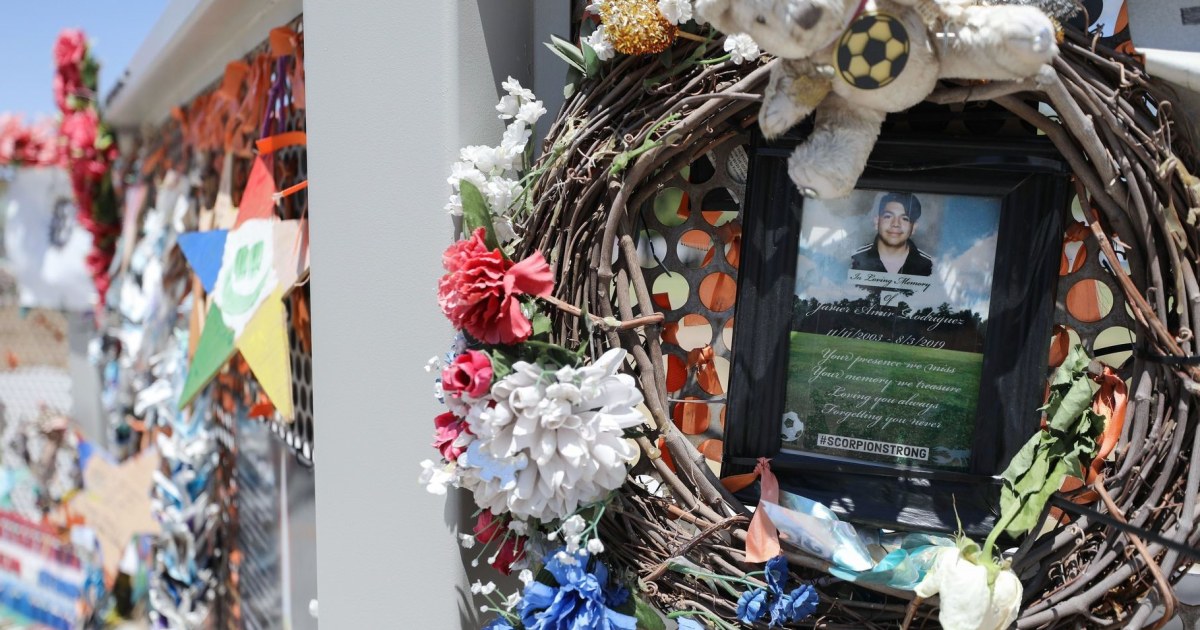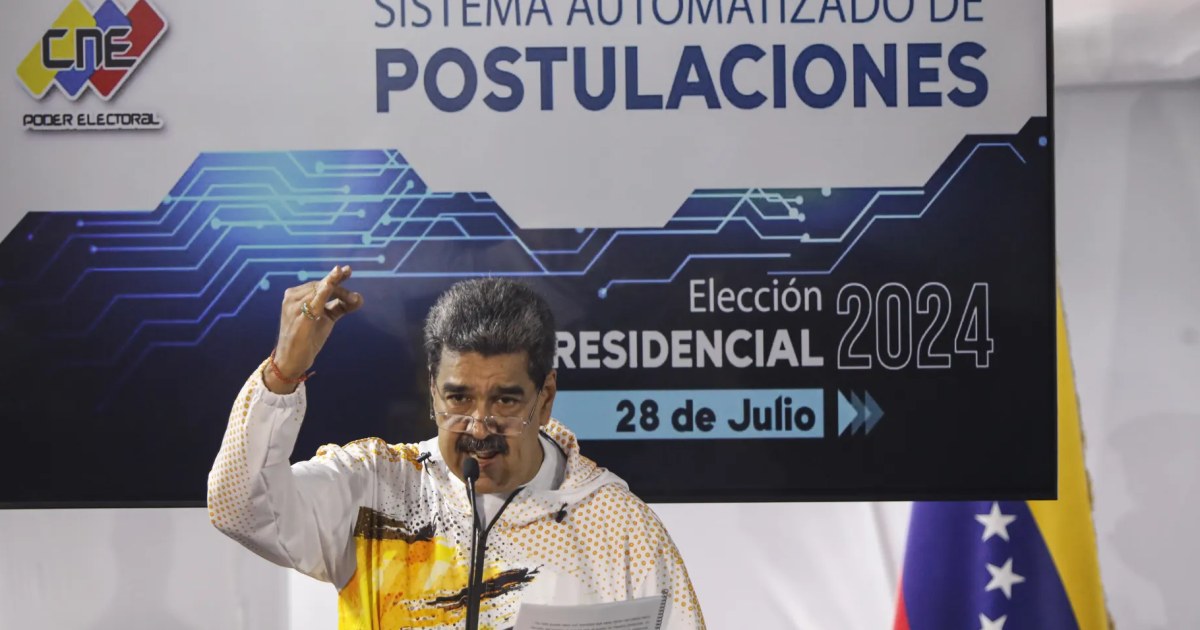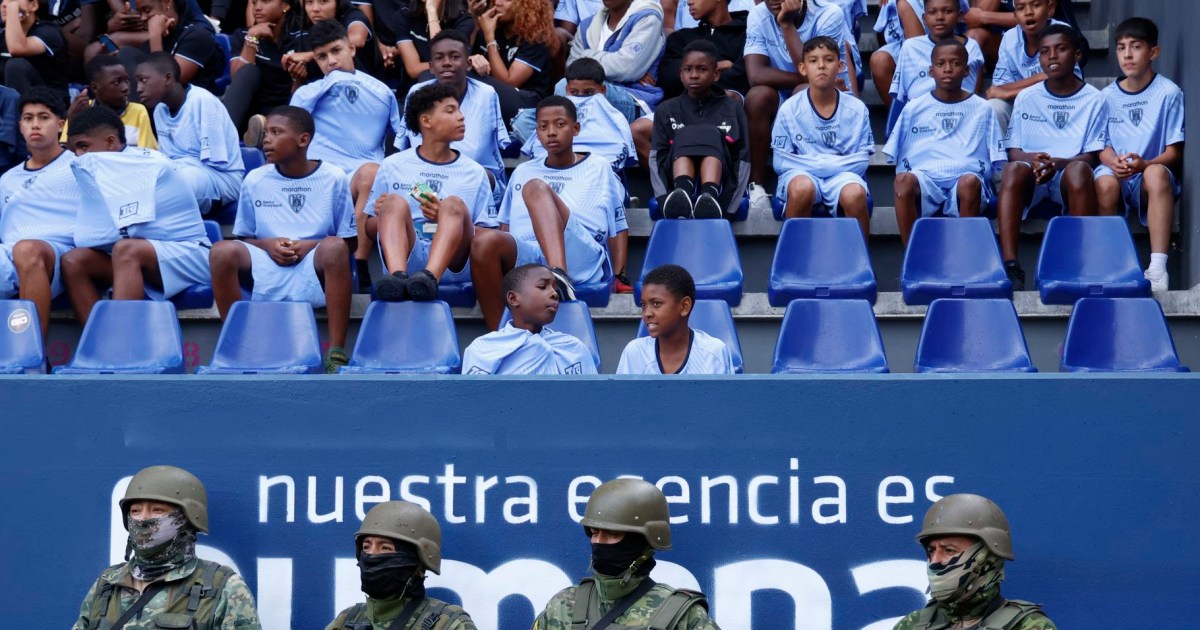Welcome to Axios Latino, a newsletter to tell you every Tuesday and Thursday the stories that have a special impact on the Latino communities in the United States and in Latin America. If you are interested in subscribing and receiving the newsletter in your email (
in English
), you can do so
by clicking here
.
We will always publish it in Spanish on Noticias Telemundo.
1 Topic to Note: Latino Entrepreneurs Left Without Funding
Less than 1%
of the financing made by the top 25 venture capital (VC) and private equity (PE) companies reaches Latino businesses, despite the fact that they are businesses that are growing and being established very quickly, according to a study.
Illustration: Aïda Amer / Axios
Why it matters
: Very low VC and PE investment underscores how Latinos and Hispanics struggle to find capital for their businesses.
That results in little support for growth in a very strong segment of the US economy.
More details
: In 2020, only 1% of the $ 487 billion spread across the 500 largest equity investment deals went to Latino businesses.
This, according to a study by the Stanfort Latino Entrepeneurship Initiative together with the consulting firm Bain & Company and the non-profit group Latino Donor Collective.
In contrast, 50% of the growth of small and medium businesses in the US during the last decade was thanks to entrepreneurs of Latin origin.
And the annual profits and revenues of those Latino businesses are growing at a higher rate than non-Hispanic white businesses, according to the analysis.
But, but, but
: The researchers also emphasize that as Latino businesses reach revenues of $ 1 million, they begin to have problems with their profitability and their cash flow.
That makes it more difficult for them to continue accelerating their growth at the same rate and for the business to scale (multiply income by having to invest less).
2.
Hispanic Footprint: The Secret of the Happy Meal
The famous component
of the underage (and some adults) favorite
fast food menu
did not actually start in the United States, but was an idea that "migrated" from Guatemala.
Illustration: Shoshana Gordon / Axios
How it was
: José María Cofiño and Yolanda Fernández de Cofiño founded the first McDonald's in Guatemala, in 1974. There, Fernández de Cofiño noticed that the children rarely finished their food, so it occurred to him to offer them a smaller version of the food and include a toy to give it a playful element.
Fernández de Cofiño nicknamed the dish 'Ronald Menu', in honor of Ronald McDonald, the mascot of the fast food company.
The businesswoman went out to buy the gifts for the box herself, which she got in markets.
The intrigue
: Fernández de Cofiño did not request permission from McDonald's parent company.
But when he saw the good response to his invention, he went to the executives and presented his idea during the 1977 franchisee convention.
Corporate officials decided to adopt the idea, which they unveiled worldwide in 1979 under the name Cajita Feliz or
Happy Meal.
Important fact:
Fernández de Cofiño passed away on September 9, at the age of 87.
McDonald's dedicated an obituary to him, in which he stressed that it was a difficult time both "for the family" of the "great woman" and for "the company and its thousands of collaborators."
More from Hispanic Heritage Month:
Cuban literacy
The Colombian neurosurgeon who saved us from dementia
Chilean development behind vaccines
Fight crime with Argentine legacy
Thank you, Mexico, for your ingenuity
Peru feeds the world
3.
A Push for Latino Voters to Register
Mexican-American activist Dolores Huerta Scott Dudelson / Getty Images
Dolores Huerta,
Mexican-American civil rights activist, and voter rights activist Stacey Abrams, from Georgia, are among the prominent participants in an event focused on encouraging the Latino vote.
Why It Matters
: The 13th annual Power Summit, organized by the progressive group Voto Latino, coincides with several initiatives across the US to motivate Latinos to register to vote for the 2022 midterm elections.
Especially from the Democrats, who saw how many Hispanics backed the Republicans in 2020.
More details
: The event, held virtually this Wednesday and Thursday, offers training sessions on how to register and how to motivate others to do so.
There will also be sessions to build Latino strength, fight for greater equity in the workplace, and fight for better access to health care services.
Huerta spoke a few words in Wednesday's session and Abrams will give his speech this Thursday.
Both are leading struggles against Republican measures that they accuse limit the vote of Latino, Black, Indian and Asian descent.
4. Full throttle through Mexico, with Mexican design
The country is the landscape
for a new racing video game, which also exalts Mexican characters and art that were developed in collaboration with consultants linked to Mexico.
Promotional image of the racing video game Forza Horizon 5, which will be set in Mexico.
Why it matters
:
Forza Horizon 5,
what
It will be launched on November 9 by the British company Playground Games, it is the latest game to hire local consultants and artists to portray the Latino experience in a sensitive and truthful way.
More details
: FH5, as it is nicknamed, is the twelfth edition of the Forza series to include renderings of real-world racing locations.
The development
: The developers deployed different people to capture the landscape, weather and sounds typical of various regions of Mexico to include in the video game in a faithful way.
Due to the pandemic and the resulting travel restrictions, developers also turned to and relied on consultants.
Among them was the illustrator of Mexican descent Lalo Alcaraz.
Farid Rueda, from a family from Morelos, also participated, including designs of native and indigenous groups in various murals that can be seen in the video game.
And the muralist Raúl Urias integrated art from his home state, Chihuahua, into artistic elements that are seen during races.
5.
Summary of key news from Latin America and the Caribbean
Oil spills near the Venezuelan coast
have hardly been cleaned up since they began in September, threatening families living nearby and fishermen who depend on the limited access to clean water in the South American country, according to Reuters.
The spills, which have not been publicly reported as they are with current spills in places like California, occur after years of neglect towards PDVSA, the state oil company that for a long time was a great source of Venezuelan economic financing.
Crudo reaches the shore of Punta Cardón after a spill at PDVSA's Paraguana refining center.
Image taken on October 1 Leonardo Fernández Viloria / / Reuters
Mexico and the US will meet tomorrow
to discuss bilateral security issues.
For the meeting, the Mexican Foreign Minister, Marcelo Ebrard, is asking for greater joint collaboration to combat arms trafficking.
On the US side will be Alejandro Mayorkas, the secretary of Homeland Security, and Merrick Garland, the attorney general.
6. A goodbye smile: unique dolls
Boys and girls in Brazil with chronic conditions
now have a way to play with dolls that represent them and help them feel more comfortable with their condition, thanks to a group of volunteers.
This initiative with dolls brings a smile to children with chronic diseases in Brazil
Sept.
12, 202101: 52
More details:
The Purpose Bonecas group weaves dolls and dolls as they resemble children in physical appearance and suffering.
The dolls are donated to minors in partnership with pediatric hospitals in Brazil.
The dolls have special elements, such as removable kidneys for kidney patients or wigs to represent cancer patients.
Fernanda Cadeias says that she created the initiative when she saw a young woman cry who lost her hair due to treatment for leukemia.
The dolls are also used by doctors and doctors to explain their treatment to minors in a playful way.
Until Tuesday, thanks for reading us.
Do you want to see any of the most recent previous editions?
The 'perfect' business for drug trafficking
The Hispanic Economic Engine
Vaccines thanks to a South American
Footprints of truth from Argentina
What Mexican ingenuity has given us
Potato secrets
The Hispanics who will take us to Mars
What does the latin heart want
Previously exposed to cancer


